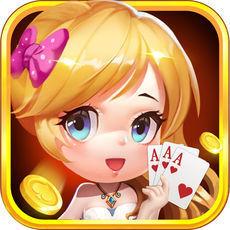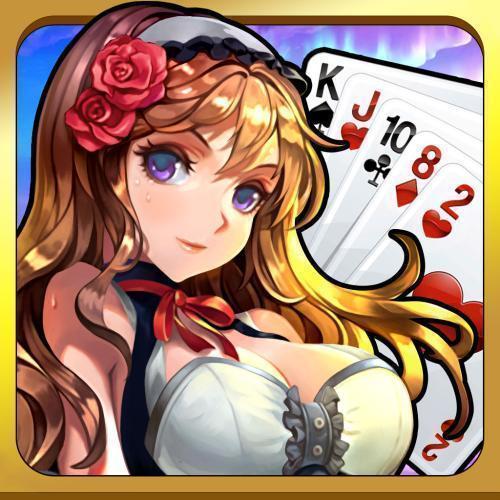
Fujia Chess & Cards (fj66) is a chess and card game that players can enjoy with peace of mind. It features professional gameplay with no bots or fake matches, ensuring fairness in every game. The game is easy to use, allowing players to log in anytime, anywhere. Download and play now!
1. It eliminates any form of cheating, featuring a unique anti-cheating system that activates immediately upon entering the game.
2. Exquisite game graphics provide a brand new gaming experience, and a dedicated beginner's training camp helps players quickly assess their skills.
3. There will be various exciting and stimulating game events frequently, allowing players to participate for free and win tons of great prizes;
4. Multiple different modes are available, offering a variety of gameplay options, and the card and board game types are among the most popular.
1. Various game sessions await your challenge, whether it's the coin session, the tournament session, or the room mode, each session is full of challenges and fun.
2. The game's sound effects are very high-definition, and the graphics are very exquisite.
3. Matchmaking is available anytime, anywhere, with no restrictions. It offers a high degree of freedom and allows you to instantly start battles, providing an exhilarating experience for players.
4. Classic and unique gameplay brings you a different gaming experience, and realistic game scenes bring you endless fun.
1. Choose from a variety of exquisite skins, engage in online battles against real players, and challenge your strategic thinking;
2. Enjoy a stable and smooth gaming experience all day long, without any lag or disconnections, allowing you to play exciting mobile battle games anytime, anywhere;
3. Realistic simulation of a card table environment, offering abundant game battles and free coins for you to collect;
4. A secure platform with a powerful anti-cheating system, allowing for real-time location tracking and game replay, creating a safe, fair, and green environment;
5. The most fun mobile card and board games, playable anytime, anywhere, with free coins and mystery gifts upon login.
1. The game features a huge variety of game genres, each with a multitude of gameplay options;
2. The game's official team will hold various competitions and events from time to time, and every player is welcome to sign up and participate.
3. Safe and legitimate, lightning-fast matchmaking eliminates waiting time, allowing you to experience super-powerful live card and board game competitions.
4. The simple and clean game interface allows for more convenient and faster operation, making it suitable for players of all ages.
Sichuan Mahjong, also known as Blood Battle Mahjong, adopts the popular Mahjong gameplay in the Sichuan region [2-3]. The core gameplay revolves around discarding a suit, "scraping the wind and rain" (a scoring system), scoring by points, and checking for a winning hand in a draw. In a single game, the game doesn't end when one player wins; instead, the remaining players continue playing until three players have won or the game ends in a draw. All scores are tallied at the end of the game. This system ensures that the first player to win doesn't necessarily gain the most, and even players who discard the winning tile can recover, increasing the game's appeal and promoting a more stable gameplay.
Game terminology
One missing
Fight to the bitter end: The game doesn't end when one player wins; instead, the remaining players continue until three players have won or the remaining players have drawn all their tiles. This increases the strategic depth and fun of the game, as the first to win isn't necessarily the one who profits the most, and even those who discard the winning tile can turn the tide. At the end of the game, all scores are tallied.
Wind and rain: The cost of the leverage is calculated during settlement.
Dealer: The dealer is anyone in the first round. In each subsequent round, the dealer is the first person to win in the previous round. If a player wins twice or three times in one round, the player who discarded the winning tile becomes the dealer.
Rolling the dice: The dealer rolls two dice to determine the starting position of the cards.
Skipping a card: When the dealer draws the 14th card, they must skip one stack of cards and draw the top card. This is called skipping a card.
Fixed Hand: At the beginning of a game, decide which suit you will not play, and this decision cannot be changed later. Generally, place one card of that suit face down and play it in the first round.
Missing (Heavenly Missing): When you draw cards at the start of a game and only have two suits or even one suit, you should declare a missing suit.
A set (or a set): Three consecutive numbers or three identical cards are called a set or a set.
Tangzi: The pile of cards played on the card table
"Jiang" refers to a pair of tiles used to win the hand.
The player is ready to win (ready to complete a hand). They are missing one suit, and need four pairs and a pair to complete the hand.
Dead call: The call you make is actually not a winning hand (all the winning tiles have already been revealed).
根 (pronounced gēn, usually with the erhua as gēr, and in some places pronounced guī): a bar, or four identical cards that do not form a bar (four cards combined into one).
"Zhangzi" refers to a specific card. For example, "How can you let go of this two-of-a-kind card?"
Last card (golden card): Three out of four cards have been played, and the last card is called the last card.
Self-draw (self-catch, self-move): winning by drawing the tile yourself.
"To discard a card that allows another player to win" (or "to let another player win") means that the card you discarded was used to win the hand against another player.
"Grid" refers to the size of the card combination.
Full Strength (Top Quality): In reality, basic hand types are generally capped at 8 times, which is considered full strength.
Checking for a winning hand: At the end of a round, if two or more players have not won, a check for a winning hand is performed. Players without a winning hand pay those with a winning hand (the amount of the payout must be agreed upon by the players themselves, and whether a dead hand counts as a winning hand must also be agreed upon by the players themselves). If there is no winning hand, a kong (a set of four identical tiles) is not counted.
"Spotted Cat" (or "Spotted Pig"): When checking for a winning hand, the player still has three suits of tiles in their hand. The Spotted Cat pays the full amount to all players who did not win and are not Spotted Cats.
Subsequent type
International friends playing Sichuan Mahjong
Card (pronounced qiā, ka): A pair missing the middle card. For example, 123 46 wan, 123 66 789 tiao, Hu wu wan.
Two sides (suō): This refers to winning by having three pairs and a pair of generals, waiting for the fourth pair. For example, 123 567 (万) and 123 56 99 (条), winning with 47 (条).
Edge tiles: These tiles are placed on both sides, but because they are on the edge, only one tile can be used to win. For example, a 120,000 tile can win with a 30,000 tile, or an 890,000 tile can win with a 70,000 tile. For example, 234 66 7890,000 and 123 890,000 can win with a 70,000 tile.
Single Fishing: There are already four pairs, waiting for one to be the pair, such as 123 456 789 Wan, 345 7 Tong, and win with 7 Tong.
A winning hand is a "pong" hand, meaning you already have three sets and two pairs, and are waiting for a fourth set. For example, 123 567 Wan and 123 55 99 Tiao, winning with 5 Tiao and 9 Tiao. Note: A winning hand with a pair doesn't necessarily mean you'll have a big pair.
In Sichuan countryside, market days are typically days ending in 147, 258, or 369. A winning hand can be formed with 5, 7, or 8 consecutive tiles. For example, a five-tile hand like 34567 of Wan (万) with 123, 678, and 99 of Tong (筒) wins with 258 of Wan. A seven-tile hand like 1234567 of Wan (万) with 123, 789 of Tong (筒) wins with 147 of Wan; 2344567 of Wan (万) with 123, 789 of Tong (筒) also wins with 147 of Wan. An eight-tile hand like 12345678 of Wan (万) wins with 369 of Wan.
A "Kǎn dǎo bǎr" hand is formed by three identical tiles and one adjacent or alternating tile, or two adjacent tiles. The three identical tiles can form a sequence, a pair, or a single tile. For example, in the hand 2223 678 789 of the Wan suit and 123 456 of the Tong suit, if viewed as 222 3, it's a single-tile wait for 3 of the Wan suit; if viewed as 22 23, it's a double-tile wait for 14 of the Wan suit, so the winning hand is 14 of the Wan suit with 3 of the Wan suit. Similarly, in the hand 2224 678 789 of the Wan suit and 123 456 of the Tong suit, if viewed as 222 4, it's a single-tile wait for 4 of the Wan suit; if viewed as 22 24, it's a triple-tile wait for 3 of the Wan suit, so the winning hand is 3 of the Wan suit with 4 of the Wan suit. For example, two adjacent tiles: 22234 77wan 123 456tong. When viewed as 222 34 77, the two sides are 25wan. When viewed as 22 234 77, the pair is 2wan and 7wan. Therefore, the winning hand is 25wan with 7wan.
"Kan Dao Ban Gan Chang Jiao" refers to a hand where two players with similar hand patterns meet in the same hand. The player with the larger hand can win with a very large number of tiles. For example: 11123456 Wan (万) + 123 + 55 Tong (筒), winning with 147 Wan (万) and 5 Tong (筒). Another example: 1112345678 Wan (万) + 123 Tong (筒), winning with 258 Wan (万) and 369 Wan (万). The most special case is 1112345678999 Wan (筒, 条), winning with 123456789 Wan (筒, 条). This hand is a Yakuman hand in Standard Mahjong, called "Nine Gates," but in Sichuan Mahjong it is only considered a Pure Suit or a Pure Suit with a root.
Game Rules
Sichuan Mahjong uses 108 tiles in total, excluding wind tiles, dragon tiles, and flower tiles. It only uses three suits: circles, bamboo, and characters, with 36 tiles of each suit, for a total of 108 tiles.
(Total 108 photos)
1. Wan tiles: 4 of each of the 1-wan and 9-wan tiles, for a total of 36 tiles.
2. Circle tiles: 4 of each of the 1-circle and 9-circle tiles, for a total of 36 tiles. In some places, they are also called "cakes," ranging from 1-cake to 9-cake.
3. Bamboo tiles: 4 of each of the 1st and 9th bamboo tiles, for a total of 36 tiles. In some places, it is also called a bundle, consisting of the 1st to 9th bamboo tiles.
You can win if you are missing a suit. You cannot eat (chow) tiles. You draw a tile to complete a kong. The game does not end when one player wins; the remaining players continue playing until three players have won or the game ends when all the tiles are drawn. If two or more players are still not in a winning hand when all the tiles are drawn, the players who have not yet won pay the difference to those who have.
1. The dealer has fourteen cards and plays first. Each of the other players has thirteen cards.
2. You can pong and kong, but you cannot chow. After a pong or kong, the tiles must be revealed (even a concealed kong must be fully revealed). There is no concept of "closed hand".
3. The person who sets off the firecrackers is responsible; it has nothing to do with the others.
4. After drawing a tile, draw the next tile.
5. If you pass on a winning hand when someone else discards a card, you cannot win with the same card discarded by another player in the same round until you draw your own card. However, you can win with different cards. For example, if you want to win with a 250,000, and the player to your left discards a 20,000 and you don't win, you also cannot win with the player opposite you discarding a 20,000, but you can win with a 50,000.
6. When a player wins a handicap after a kong, the player who discarded the winning tile transfers the points earned from the kong to the player who was discarded. If more than one hand is discarded after a kong, the player who discarded the winning tile must pay the discarded player an additional amount of the points earned from the kong.
The following rules are prevalent in some regions; it is necessary to discuss and agree on whether to implement them before playing the game.
7. If you win a hand by drawing a tile discarded by another player and then draw a winning tile on top of that tile, it counts as a self-draw. (In some regions, this is considered a discard that allows someone to win by discarding another tile.)
8. You must win with the last four cards played. (In some regions, you don't have to win.)
9. The compensation is called "large compensation" (in some areas, the compensation is small).
10. A dead bid is considered a winning bid, and the winnings are calculated accordingly. (In some regions, a dead bid is not considered a winning bid or there is no penalty for a dead bid.)
Terminology Number
Sichuan Mahjong
In Sichuan Mahjong, basic hand types and melds are charged together. The final win or loss is the sum of these two.
Basic card types (grids) and basic scoring:
Pinghu: A standard four-of-a-kind with a pair of generals. For example: 123 345 789 Wan 234 66 Tong (1 point)
Big Pair (Pair Hand, All Pung Hand): All four pairs consist of three identical tiles. For example: 111 333 444 of Wan (characters), 222 66 of Tong (2 points).
Pure Suit: A winning hand consisting entirely of tiles of the same suit. For example: 111 234 345 666 88 (4 points)
Qingdà Duī (清对): A set of identical couplets (8 points)
Related Articles

Video playback|0people downloaded
View Details
Video playback|0people downloaded
View Details
Card games|0people downloaded
View Details
Card games|0people downloaded
View Details
Card games|0people downloaded
View Details
Card games|0people downloaded
View Details
Card games|0people downloaded
View Details
Card games|0people downloaded
View Details
Card games|0people downloaded
View Details
Card games|0people downloaded
View Details